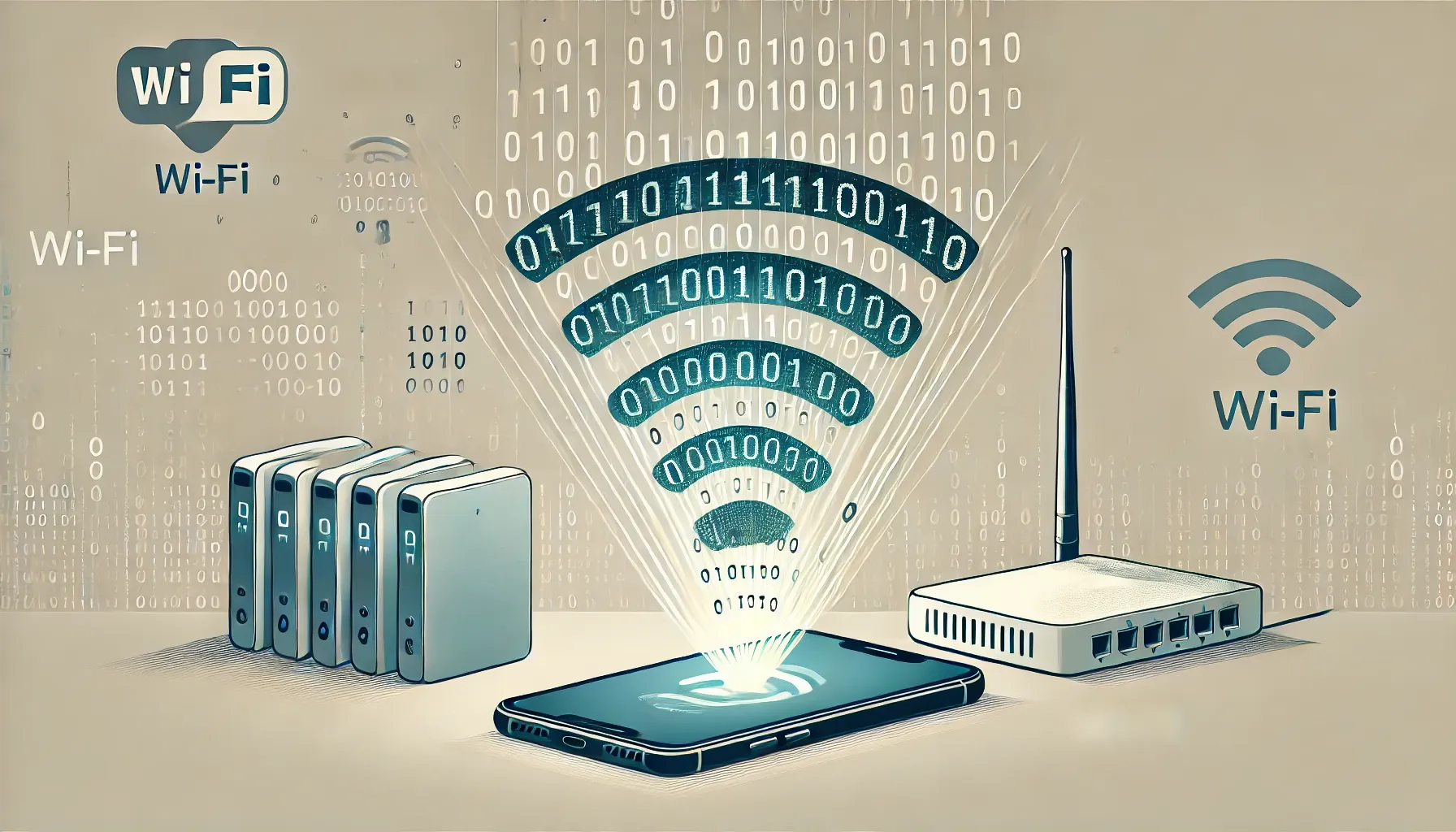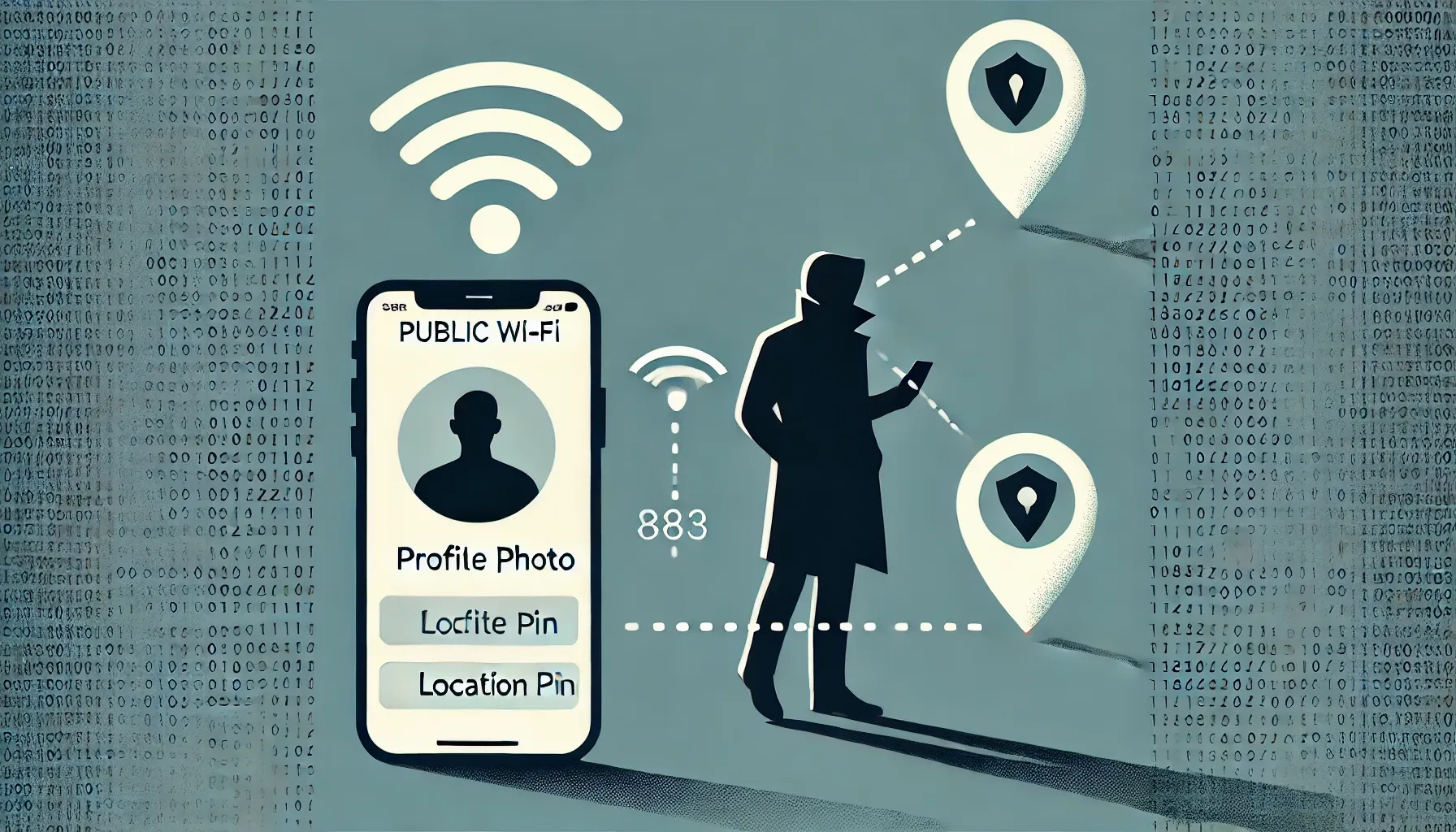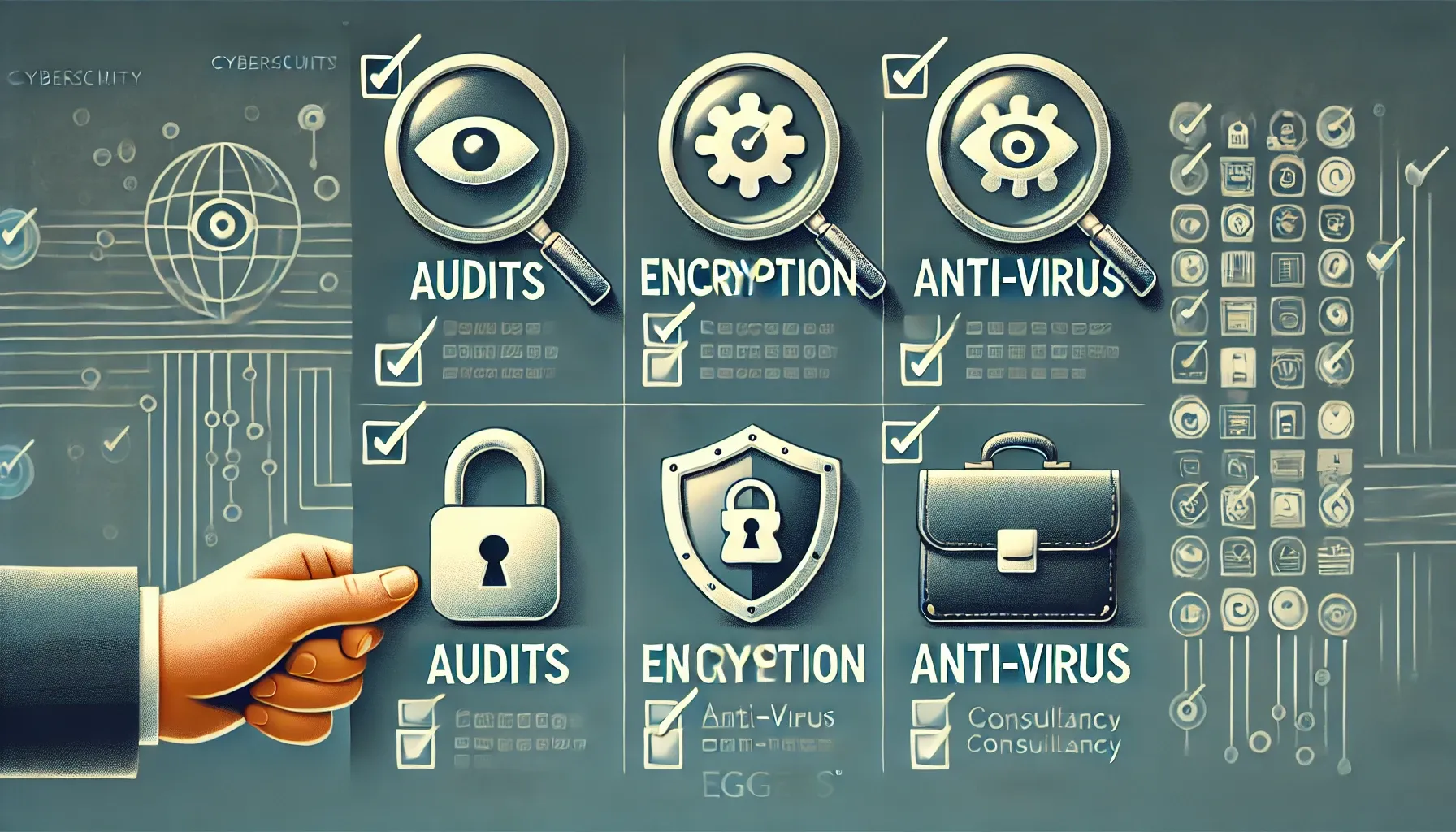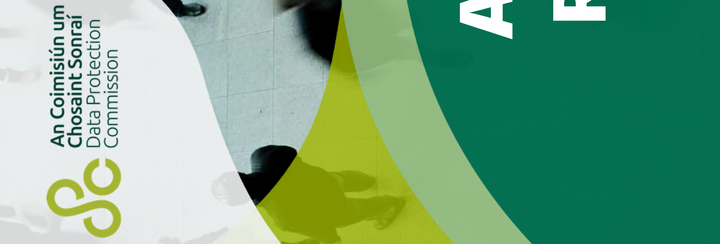Grindr’s Security Failures: How Your Private Data Was Left Exposed on Public Wi-Fi—And What Irish Businesses Can Learn from It

Imagine you’re in your favorite coffee shop, scrolling through Grindr to see who’s nearby. You send a message, check some profiles, and then… Well, what if I told you that for a while, anyone on that same Wi-Fi network could have been listening in to see images of men you were talking to or information about your HIV status? Today, we’re diving into Grindr’s security oversights and why protecting your data on public Wi-Fi matters, especially for Irish businesses looking to secure sensitive information.
How does WiFi work?
To understand how Grindr’s security went wrong, let’s start with a quick look at how Wi-Fi works. Imagine you’re in a dark room with a flashlight. When you flick it on and off in quick bursts, you create flashes that represent “bits” of information. Wi-Fi works similarly, using invisible radio waves to send data in short bursts of ones and zeroes—known as binary. Everything you send, from a message to a photo, is broken down into these ones and zeroes.
When you’re on a public Wi-Fi network, you’re in a room with others who have their own “flashlights.” If your data isn’t protected by encryption (a sort of “digital lock”), anyone in that room with the right tools can “see” the data you’re sending. This brings us to Grindr’s security issues and how they left certain data unprotected on public Wi-Fi.

Grindr’s Major Security Flaws: Data Sent Without Encryption
Grindr had one big issue that cybersecurity experts found concerning: some data was being transmitted without encryption. Encryption is like a secret code that scrambles data so only the person or server it’s intended for can read it. Apps and websites use HTTPS encryption to keep sensitive information, like messages and photos, secure. But for a while, Grindr wasn’t using this “lock” for certain data types.
Let’s break down what Grindr was actually exposing:
- Location Data: Grindr is location-based, which means it shares your approximate location to help match you with nearby users. However, researchers discovered that Grindr was sending this location data without encryption. This meant that if you were on public Wi-Fi, anyone with basic tech skills could intercept this data and potentially track your location in real time (TechCrunch).
- Profile Photos: Grindr was also sending profile photos unencrypted. So, anyone on the same Wi-Fi network could view these images and details by monitoring the network’s unencrypted data traffic. If you were in a crowded place, like a café or airport, anyone with the right tools could see exactly who you were chatting with (CTRL Blog).

User Location Privacy Issues and the Risk of Tracking
Grindr’s issues went beyond public Wi-Fi. One significant flaw involved location triangulation, which allows others to pinpoint users’ locations by measuring distances between multiple points. Here’s a timeline of location-related concerns:
- User Location Triangulation (2014): Researchers found that Grindr’s distance measurements could be exploited for location triangulation, allowing individuals to pinpoint users’ near-exact locations (Gadgets360). This became a safety issue, especially in countries where LGBTQ+ individuals face discrimination. Authorities in Egypt allegedly used this vulnerability to arrest gay men.
- Location Pinpointing Even with Hidden Distance (2016): Despite Grindr’s attempts to fix the triangulation issue, a group of computer scientists demonstrated that location pinpointing was still possible. Using a technique called colluding-trilateration, they showed that any user could be located without specialized hacking (Wired).
- Location Data Sale (2017-2020): Between 2017 and 2020, Grindr shared user location data through a digital advertising network. While they curtailed this practice in 2020, historical data from this period may still be available, raising concerns about lingering privacy risks (Wall Street Journal).
Selling Sensitive Data to Third Parties
In addition to unencrypted data transmission, Grindr’s data-sharing practices raised major privacy concerns:
- User Data Privacy Violations: In 2018, a Norwegian non-profit revealed that Grindr was selling data bundles containing personal information, such as users’ HIV status and test dates, to third parties. This revelation sparked widespread criticism of Grindr’s privacy policies. Grindr responded that it did not sell identifiable information and used highly-rated vendors with strict confidentiality terms, but the damage to user trust was significant (BuzzFeed News).
- GDPR Violation and Fine (2020): The Norwegian Consumer Council reported that Grindr had been sending user data to over 135 advertisers, including location and device information that could reveal users’ sexual orientation. This led to a €10 million GDPR fine from the Norwegian Data Protection Authority, citing violations of user consent and privacy rights (The Verge).
Security Vulnerabilities in the Password Reset Process
Grindr’s security flaws even affected its password reset process. In 2020, a researcher discovered that the process was so insecure that anyone with a user’s email address could reset their account password without their knowledge. This vulnerability allowed malicious actors to take over Grindr accounts with little effort, showing that even basic security measures were missing (Troy Hunt).
Lessons for Irish Businesses: Why Data Security Is Critical
Grindr’s security flaws reveal a key lesson for any business handling sensitive data: encryption and strong cybersecurity practices are essential. For Irish businesses, especially those required to comply with GDPR, failing to protect user data can have serious consequences, including fines, loss of customer trust, and damage to reputation. If you’re an Irish business, especially in healthcare, law, or any field handling sensitive data, it’s critical to implement the right cybersecurity measures.
Eggers Cybersecurity provides a full suite of services to ensure Irish businesses protect their data:
- Comprehensive Cybersecurity Audits: Our audits examine your systems and networks to identify vulnerabilities like unencrypted data transmission or API access issues, much like the ones Grindr experienced.
- Data Encryption Solutions: We implement encryption for all data in transit and at rest, ensuring it stays secure even on public networks.
- Anti-Virus and Anti-Phishing Tools: Protect your systems from malware, phishing, and other threats with our advanced tools tailored for Irish businesses.
- General Cybersecurity Consultancy: From Dublin to Galway, our Irish consultancy services provide guidance on data protection and best practices to keep your business secure.

Practical Tips for Staying Safe on Public Wi-Fi
To avoid public Wi-Fi snoopers, here are a few easy ways to secure your data:
- Avoid Sharing Sensitive Data on Public Networks: Don’t enter banking details or send private messages while connected to public Wi-Fi. Use mobile data for sensitive transactions.
- Look for HTTPS: When browsing websites, check that they show a padlock symbol in the browser. This means the site uses HTTPS, which encrypts data.
- Use a VPN (Virtual Private Network): VPNs add an extra layer of encryption, creating a “tunnel” that keeps your data private from anyone else on the network.
Data protection isn’t just about privacy; it’s also about compliance and customer trust. For Irish businesses, the implications of a data breach are serious. GDPR enforces strict requirements for protecting personal data, and failing to meet these standards can result in penalties. Eggers Cybersecurity offers specialized services to help Irish businesses stay compliant, secure customer data, and protect against potential cybersecurity threats.
How We Help Irish Businesses:
- Customized Cybersecurity Audits: We provide in-depth audits to catch potential vulnerabilities, tailored to your industry’s specific needs.
- GDPR Compliance Consultancy: We ensure your data practices meet GDPR standards, helping you avoid costly fines and penalties.
- Employee Training: Security starts with people. We train your employees to recognize phishing attempts, handle data responsibly, and follow best practices for data security.
Grindr’s security flaws remind us that data protection is essential, not optional. If you’re an Irish business handling sensitive data, Eggers Cybersecurity offers the expertise to keep your information safe. From comprehensive cybersecurity audits to data encryption solutions, we’ll help ensure your business stays secure and compliant with all necessary standards.




